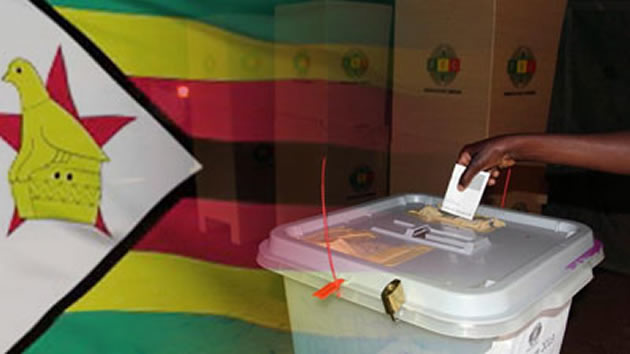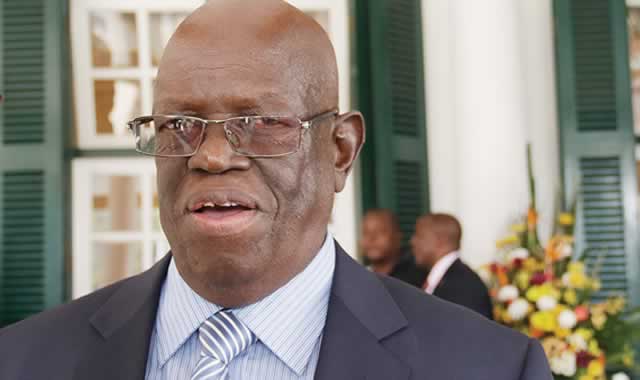Diaspora: The vote and inclusion

Tichaona Zindoga Political Editor–
At a meeting that the Zimbabwe Electoral Commission held with the media, one thing loomed largest — the issue of the Diaspora vote. The issue of the Diaspora vote, which would allow Zimbabweans abroad to participate in national elections is contentious.It is polarising, emotive and loaded with political innuendo.
That is why ZEC chairperson Rita Makarau was almost on a trial on Tuesday.
She had to assure that she recognised the rights of Zimbabwean Diasporans and on the other hand she had to explain the logistical challenges associated with the exercise.
At the end of the day, she had to explain that Zimbabweans in the diaspora would have to come home and vote if they wished to exercise that right, essentially.
These were her words: “There are quite a few things that must happen before people in the Diaspora will be able to vote where they reside. People in the Diaspora will be able to vote as long as they come back to Zimbabwe on voting day and can vote from their wards. People in the Diaspora, like other Zimbabweans, once they are registered to vote, they are free to come back and be able to cast their ballots in their polling station which is designated in their ward. So there is nothing that stops people in the Diaspora from voting as long as they come back.
“Whether we will be able to make them vote in the Diaspora, quite a few things must happen and one of them is that the Electoral Act must be aligned to the Constitution and provide the mechanism through which the Diaspora vote will be administered . . . until there is that legal framework governing the Diaspora vote, people in the Diaspora will not be able to vote where they currently reside unless they come to Zimbabwe and vote.”
That was bound to send angry murmurs among Diasporans who may feel disenfranchised.
There are also political-party positions in all this. It will be critical to unpack the phenomenon.
In so far as politics is concerned, the diaspora has been viewed somewhat in black and white.
The opposition believes that most Zimbabweans in the Diaspora support it hence its clamour to have Diasporans vote at all costs.
The opposition perception is simple: it believes that Zimbabweans “fled” home due to economic challenges and would be ready to vote out the ruling Zanu-PF.
The Diaspora has been a vocal and important constituency for the opposition since 2000, being involved in activism, funding and lobbying.
Zanu-PF, on the other hand has appeared to fret over the Diaspora with its façade of opposition support.
The party has been seen treating the Diaspora with something akin to disdain, if not, and mistrust.
Yet, things have appeared to change in recent times: in two ways.
The Diaspora is a veritable source of economic succour, with remittances from Zimbabweans abroad increasingly becoming an important factor in light of challenges spawned by the under-performing economy.
Diaspora remittances are said to amount to about US$1 billion annually, constituting the second source of foreign currency after exports.
Zimbabwean ministers and officials have made regular trips to London to encourage remittances and investments back home.
They have been received with something between coldness and ambivalence for reasons that we will demonstrate.
The second way in which the ruling party appears to be changing its attitude towards the Diaspora is the increasing presence and assertiveness of its external chapters — most notably in the UK.
The party is thus softening its stance, increasingly.
Imperfect Policy?
Zimbabwe has a Diaspora policy in place. The policy, enunciated in July this year seeks to lay out the framework and terms of engagement between Harare and the Diaspora.
It states that: “The Zimbabwe Government recognises that international migration has become an established feature of contemporary social and economic life, with both positive and negative manifestations and opportunities.
“Governments across the world are increasingly becoming aware of the growing importance of international migration on the international development agenda. Effective migration management is an essential element of overall good governance, which is increasingly recognised as an essential foundation for sustainable development.
“Migration has been identified as possessing potential investment and development opportunities. The key benefits of migration for countries of origin if properly managed, include the investments by the Diaspora communities into their homeland and the positive impact of remittances on foreign currency inflows, knowledge and skills-transfer when migrants return home on a temporary or permanent basis, increased levels of indigenous entrepreneurship through new opportunities in the private sector by those in the Diaspora, improvement in human development through philanthropic work and ultimately poverty reduction as the Diaspora communities invest into their motherland.”
The policy acknowledges that the “Zimbabwe Diaspora wishes to be engaged as active citizens in national dialogue and affairs as they bring international exposure and lessons to the table.”
A “directorate” was thus established in the Ministry of Macroeconomic Planning and Investment Promotion with a mandate to: attract Diaspora investment into our economy through the recently approved Diaspora policy and engage Zimbabweans living and working in the Diaspora and emphasising that Zimbabwe is ready for such investments; engage Zimbabwe’s Diaspora to take an active role in the national economic development process and invite them to participate in national skills development in national institutions of Higher learning; develop mechanisms for dialogue and partnership with Zimbabweans abroad and encourage them to develop joint venture investments and partnerships and create formal channels for investing in Zimbabwe by the Diaspora in order to harness and maximise the potential of their contribution to Zimbabwe’s development.
The other goals include: encouraging the Diaspora to use formal channels of remitting funds to Zimbabwe for development purposes; establishing the necessary institutional mechanism for co-ordination and administration of issues affecting Zimbabweans abroad; meet the Diaspora’s needs and expectations in order for them to play an effective role in Zimbabwe’s economic and social development; enabling the Diaspora to play an effective role in the financial and economic development of the country; and working with relevant Ministries to establish mechanism for the transfer and repatriation of terminal, pension and social security benefit for retired.
It does not take much genius to figure out why this policy is considered imperfect by critics.
It is just not holistic enough.
It is simply, as the accusation goes, one sided: that diasporans should be milked of their money and expertise while they do not enjoy decision-making powers captured in the vote.
The diaspora is not happy, mostly justifiably so.
—–A modest proposal—–
Which makes the sentiments of Tourism Minister Walter Mzembi, who has been in the UK for the past week or so, interesting.
He is proposing – at least for his own party – the ruling Zanu-PF – that it considers bestowing political rights and powers to external structures.
He says there is a sense of political excommunication in the diaspora and Zimbabweans abroad aspire for political representation and rights.
A good start, he contended this week, was that as the ruling party goes to its annual conference in Masvingo it looks “a bit more critically and analytically at competitively incentivizing diaspora politics.
He is of the opinion that Zanu-PF diasporan structures could made provinces and be eligible for central committee nominations, and so forth.
“In the Legislature, maybe start off with non-constituency representation, one each, or more for those structures with high concentrations. They will not only get locked into our agenda more intimately but enhance our debates in Parliament. France has or used to have Francophone countries representation in its Parliament, and it was a major loyalties incentive for its former colonies. We look at ours in reverse, and this as new thinking will yield unprecedented political results,” he said.
While Mzembi may speak for his party, the same, once could be sure would resonate with other parties whose members abroad would like to be included in the day to day decision making processes of their parties for which they sacrifice energy and resources.
And it may also be the time to relook at the Diaspora Policy, however newly minted it is, with a view to make it more holistic.







Comments